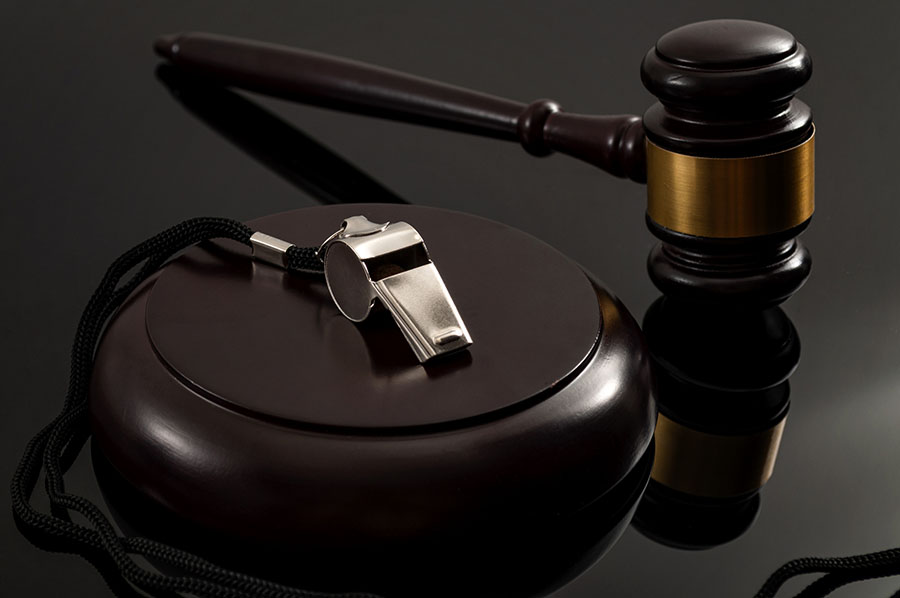Qui Tam Lawyers

If you believe that there has been a violation of Qui Tam laws, in an effort to defraud the US government Shimoda & Rodriguez Law, P.C. can help. Shimoda has seasoned attorneys who can help Individuals who expose such governmental frauds and receive comprehensive protections and share in any financial recoveries made.
What is Qui Tam?
Qui Tam is a critical element of the False Claims Act (FCA) that empowers whistleblowers to expose fraudulent activities against the US government. In return for exposing fraudulent actions, the whistleblower often referred to as a Qui Tam relator receives a portion of the recovered funds.
Such fraudulent actions encompass a wide range of malpractices such as mishandling of disaster relief loans, overbilling, kickbacks, false statements, healthcare upcoding, and more.
Legal stipulations of the FCA can be found in 31 U.S.C. §§ 3729-33, with anti-fraud specifications listed in 3729 and the qui tam provisions detailed in 3730.
Contact our team of Qui Tam lawyers to pursue legal action.
The Role of the Qui Tam Relator
The primary role of a Qui Tam relator is to unearth and expose fraudulent activities carried out by organizations. Qui tam claims often allege fraud involving Medicare, Medicaid, defense contractors, or public procurement. All of these cases involve defrauding the government.
When a claim is made the qui tam relator is granted similar protection as a whistleblower. While a qui tam relator and whistleblower are often used synonymously there are a few key differences.
The main difference between a qui tam relator and a whistleblower sits within the respective legal contexts each operates within. A qui tam relator refers to a person or entity that initiates a lawsuit for the government under the whistleblower clauses of the False Claims Act. Contrastingly, the term “whistleblower” encapsulates a broader range of individuals who expose any kind of illicit actions or misconduct and is not solely confined to situations under the False Claims Act.
This variation extends to their roles and legal protections. Qui tam relators can qualify for rewards and incentives as per the False Claims Act, whereas whistleblowers might be entitled to further protections under distinct laws designed to safeguard whistleblowers.
Legal Requirements for a Qui Tam Case
For a viable qui tam claim there must be evidence of fraud committed against a government entity. The proof can be presented in a variety of ways including:
- Emails
- Financial records
- Internal memos
- Occasionally recorded verbal evidence
Our experienced qui tam lawyers can help guide you through the process and legal producers with the False Claims Act to ensure all the proper procedures are followed.
How We Approach a Qui Tam Lawsuit
- Initial Consultation: Our legal experts will engage with you to understand and collect the details of your Qui Tam case.
- Review & Plan: After obtaining the necessary information and supporting evidence for your qui tam case, our team will construct a comprehensive legal plan to seek the most favorable result.
- Representation & Resolution: In many cases, we can settle the result of the qui tam case but if needed our lawyers can handle the court proceedings related to a qui tam lawsuit along with all procedural requirements.
Galen and his team were very easy to work with. They were honest about what to expect and very responsive. They made me feel at ease with a process that was very foreign to me. I was extremely happy with the outcome of my case. I would highly recommend using this firm.
Frequently Asked Questions About Qui Tam
What is a Qui Tam relator?
A Qui Tam relator is a type of whistleblower who initiates a case that involves fraud committed against the state or federal government under the False Claims Act. Relators may be entitled to a percentage or portion of the money recovered by a lawsuit.
How do you file a Qui Tam lawsuit
To commence a Qui Tam lawsuit, the relator
- File the civil complaint with the court under confidentiality, known as under seal, during which the defendant is not subject to a summons;
- Deliver a copy of this complaint along with a ‘written disclosure of nearly all significant proof and details’ held by the relator to both the Attorney General and the United States Attorney (USA) in line with Fed. R. Civ. P. 4 or Federal Rules of Civil Procedure’s Rule 4.
Following these steps, the government must determine whether to assume responsibility for the lawsuit. If the government declines to inform the court that it will be taking over the case, the relator is then responsible for seeing the lawsuit to completion.

